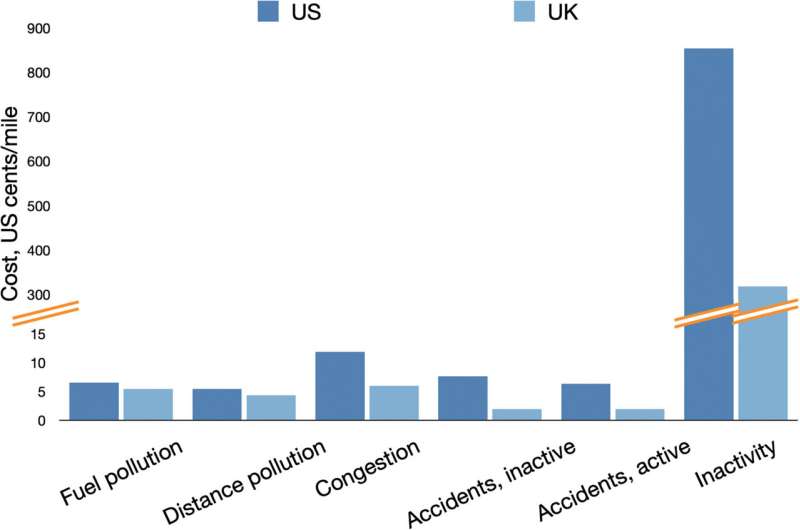This article has been reviewed according to Science X's editorial process and policies. Editors have highlighted the following attributes while ensuring the content's credibility:
fact-checked
proofread
Study on the economic connection between health and mobility

The health benefits of walking and cycling are so significant for society that they should be taken into account in setting fuel taxes. This is the conclusion of an international study published today (Oct. 13) in the journal Economica, in which Professor Linus Mattauch, a researcher at the Climate Change Center Berlin Brandenburg, is involved.
"We find that taking into account the health benefits of physical activity increases the optimal fuel tax by 44% in the U.S. and 38% in the U.K.," concludes the international research team, which comprises researchers from Oxford, Utrecht and Berlin. "The significant health benefits of active forms of mobility such as walking and cycling suggest that economic transport policies need to be re-evaluated," says Mattauch, co-author of the study.
"We provide a novel argument for balancing the benefits of car use with its cost to society. While our economics model allows us to quantify fuel prices specifically, our argument also applies to other elements of sustainable transport such as urban redesign."
In Germany, too, he says, about 60% of the population does not get enough exercise. Transportation policy needs to be reassessed in areas where the health benefits of increased movement are particularly high. "In the evaluation of urban transport policy measures, an urban toll on motorized vehicles in particular would have many economic advantages because it already reduces congestion and air pollution," Mattauch says.
The new study shows that a toll would have the additional advantage that citizens also get a little more exercise and that this can actually lead to savings in health care. Other policy instruments that create better conditions for non-motorized traffic, from wider bike lanes and pedestrian paths to low-traffic neighborhoods and urban greening, also have higher economic benefits than previously thought for the same reasons.
More information: Inge van den Bijgaart et al, Healthy Climate, Healthy Bodies: Optimal Fuel Taxation and Physical Activity, Economica (2023). DOI: 10.1111/ecca.12497
Provided by Climate Change Center Berlin Brandenburg



















